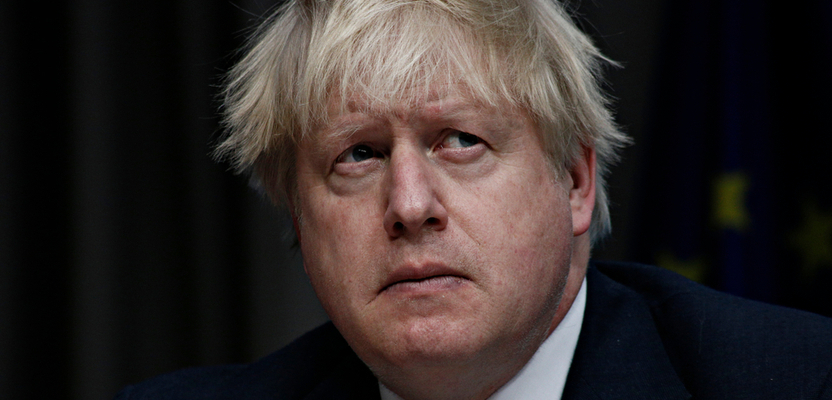Boris Johnson rejects calls to slash VAT on energy bills

Boris Johnson has said that he will not be slashing VAT on energy bills as households face a significant cost of living increase.
The prime minister's decision comes amidst concerns that the price cap - a mechanism that sets how much energy providers can charge customers - will rise by as much as 50% in April. This is due to a huge spike in the wholesale cost of gas and electricity. The resulting fallout has caused dozens of smaller energy providers in the UK to go out of business.
One of the suggested methods to prevent ruinously high energy costs for households was cutting VAT, which would equate to a 5% reduction in bills. Johnson is firmly against this however, describing it as a “blunt instrument”.
"We will continue to listen to businesses and consumers about ways of abating the cost of energy, there are things we can do, and we appreciate the problems people are facing," announced Johnson during a press conference at Downing Street.
"I am not ruling out further measures… [but] VAT is a bit of a blunt instrument, you end up cutting fuel bills for people who don't need the help in quite the same targeted way. Rishi Sunak is very mindful of the increase in energy prices."
Instead Johnson has suggested more help for customers from lower incomes. Support is already available through initiatives like the winter home discount and winter fuel schemes. £500m has also been made available in the form of a winter hardship fund.
Johnson's response came about after 20 Tory MPs wrote to himself and Rishi Sunak, urging them to address difficulties many households are facing. In it they argued that rising household bills could contribute “directly into a cost-of-living crisis for many and push them into what is bluntly called ‘fuel poverty’”.
The letter was signed by several prominent backbenchers including former Brexit minister David Jones and former work and pensions secretary Esther McVey. Downing Street's swift rebuke has raised a few eyebrows because cutting VAT on energy was included in Johnson's Brexit manifesto.
At the time it was touted as one of the benefits of leaving the European Union. EU laws prohibit member states from adding any less than 5% duty on household electricity and gas bills.
As well as removing VAT, the MP’s also took aim at environmental levies. This is money that energy suppliers must pay into green energy schemes and has a knock on effect for customers.
Responding to the call for levies to be reduced, Johnson’s spokesperson said “The exposure to volatile global gas prices underscores the importance of our plan to build a strong, homegrown renewable energy sector to further reduce our reliance on fossil fuels. It’s right that we invest in this and ultimately bring down the cost of renewable energy sources while supporting lower-income and vulnerable households with their energy bills.”
Should the price cap rise by as much as expected, customers would face an extra £18bn in bills. This alone would cause inflation to rise by 1.8%.
Read on our blog

With the government poised to implement tough new measures to...

Budget broadband provider TalkTalk has been notifying customers via email...

A year-long investigation by charity Citizens Advice has revealed a...

Education Secretary Nadhim Zahawi has announced a new commitment to...
